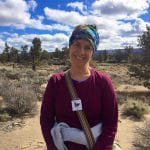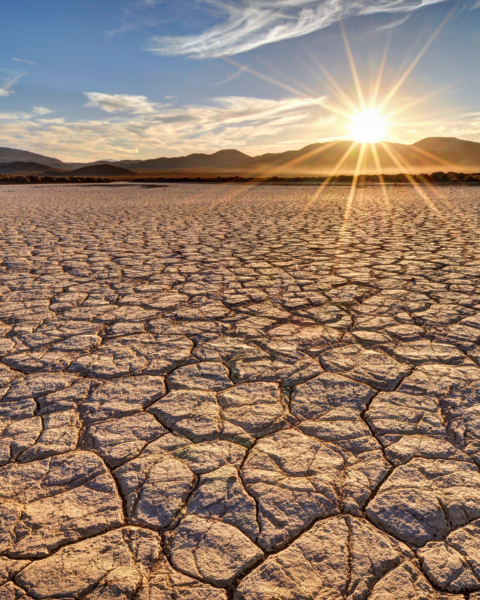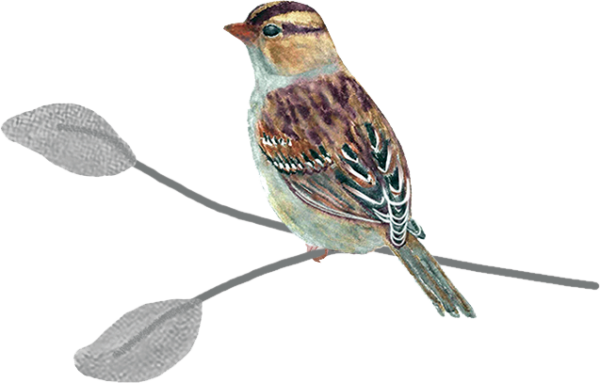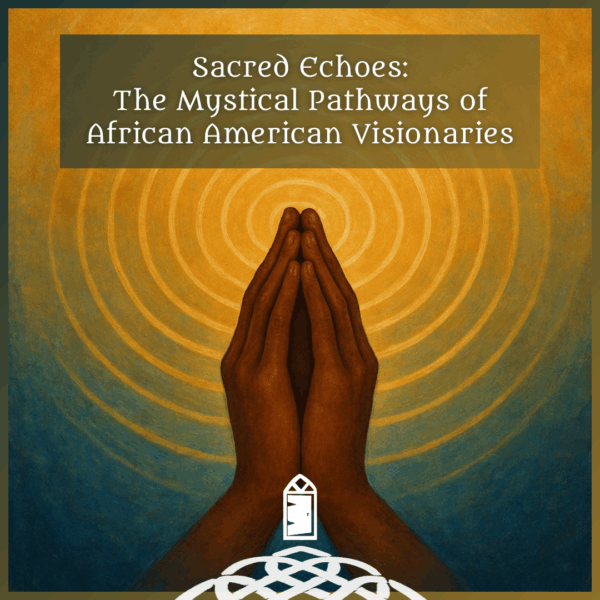I am delighted to share another beautiful submission to the Monk in the World guest post series from the community. Read on for Barb Morris’ reflection on the danger of being a Monk in the World.
“DANGER.” That’s the sign that should hang at the entrance to every cloister. In big red letters.
The fine print should say, “Warning: Being a Monk in the World is dangerous. Your commitments to silence and solitude, hospitality, community, kinship with creation, work, Sabbath, conversion, and creative joy are subversive and will cause conflict and strife in your everyday life. Your striving for greater wholeness and integrity will not always be peaceful.”
I wish someone had told me before I set foot on this contemplative path that my life would be disrupted. That sitting in silence, being present to Reality around and within me, would jostle loose my detente with the status quo. That accepting holy invitations from the Deep Voice would lead me to terrifying places of profound unrest.
Here’s the current disruption in my life created by my monk commitments.
I’m feeling a desire to leave church. I’m tired of masculine God talk and persistent imagery of atonement and sin. I’m tired of being complicit in the church’s refusal to acknowledge words and structures that are clearly harmful, especially to women, people of color, and the Earth. The glacial pace of change isn’t adequate for me anymore.
I’m a cradle Episcopalian married to an Episcopal priest. I love the Episcopal Church. (As I write, I’m listening to a Thomas Tallis Pandora station.) I’ve taken church sabbaticals several times in the last thirty years, choosing to be outside rather than inside behind stained glass windows. My sabbaticals have been difficult and disruptive for my husband’s parishioners who are also my friends. Leaving church is not a decision I make lightly.
So, what to do when actions that feel faithful and necessary to me seem unfaithful to others?
I remember that following the call of wilderness is not an unfaithful act. Going roadless is, on the contrary, an act of profound faith. Christians for centuries have jumped the cloister walls to seek direct experience of the Divine, unmediated by hierarchy, rules, and doctrinal decrees.
Jesus comes to mind.
The Desert Ammas and Abbas come to mind.
Our Celtic forebears, who sailed rudderless on the open seas in their curraghs, come to mind. Our Celtic forebears, who built isolated huts on the peaks of rocky mountain islands in the Atlantic Ocean and survived on puffins and gannets. Our Celtic forebears, who pioneered new forms of monasticism and evangelized Europe from their wilderness outposts.
There’s ample Christian precedent for going roadless.
Abbess Christine says this about roadlessness in The Soul of a Pilgrim: “The second-century bishop and theologian St. Irenaeus wrote that the true pilgrim was to live life in a state of ‘apavia,’ a Latin word which means ‘roadless.’ He called for a posture of deep trust in the leading of the Spirit, rather than human direction. In essence, he taught that the place where we don’t know where we’re going is also the place of greatest richness.”
Despite the assurance of St. Irenaeus, the wilderness still scares me, and not only because my going there makes others uncomfortable.
When I go roadless, I come face to face with threats I’d rather avoid.
- I come face to face with my reliance on church, parents, teachers, and other authorities to tell me whether or not I’m getting it right.
- I come face to face with what I really believe. Or don’t believe, as the case may be. I discover that received ideas about God, faith, and belief won’t cut it. I need sturdier stuff to survive out here. I need real food, real faith in a God that makes sense to me. The desert light shines through the holes in the fabric of my faith, and there’s no one out here to mend them but me.
- I come face to face with parts of me I’d rather not meet. I see and hear the me that’s fearful, whiny, and childish. The me that judges and finds fault. The me that just wants things to be different than they are.
- I come face to face with loneliness. I want friends, family, and community. I want companions on this roadless road.
Yet, when I’ve had the courage to go, I find the gifts of wilderness are worth facing my fears. I find what can only be found in wild, roadless places.
- I find silence for hearing that Deep Voice, the “Bat Kol” of ancient Hebrew tradition for whom the Desert Ammas listened.
- I find space for my heart. I can hear my yearning, my pain, and my hope with sharp-edged clarity because there are no external voices to distract me.
- I find unexpected beauty. Rocks in the dusty road sparkle, and even the weeds and dirt are lovely.
- I find my body, the ultimate wildness.
I’m going wild, for a season or two. Look for me on a mountain peak or sitting on a river rock, face to the sun, dusty feet in the water. I’ll be listening to what’s true for me, finding the bedrock of my faith, sweaty and free. I’ll be trusting in the holiness buried beneath doctrine, rules, and hierarchy to see me through.
Contemplative practices shepherd us back to our integrity and wholeness. Integrity and wholeness, like metamorphosis, shatter our static, shiny outer shells as new growth emerges.
The contemplative life is dangerous, and so worth the risk. I’m glad I didn’t see the warning sign!
 Barb Morris is a life coach, writer, and artist living in Bend, Oregon with her Episcopal priest husband. They walked the Camino de Santiago in 2014. Barb is the author of the forthcoming book Choosing Transformation: A Handbook for Change. You can connect with her at www.barbmorris.com.
Barb Morris is a life coach, writer, and artist living in Bend, Oregon with her Episcopal priest husband. They walked the Camino de Santiago in 2014. Barb is the author of the forthcoming book Choosing Transformation: A Handbook for Change. You can connect with her at www.barbmorris.com.




13 Responses
¡Vayas con Díos!
¡Gracias, Marcia!
Go for it! There is nothing to lose…you already have everything you’ll ever need right there inside yourself. But you might gain a clearer view of that. So blessed be and let us know how it goes!
Thanks, Carrie, for the affirmation! I will totally let you know how it goes. :)
Your writing has put words to my journey: Roadless, leaving church, masculine god, etc. All the feelings and struggles I feel captured succinctly in one blog post. Thank you.
You’re welcome, April. I’m glad my post spoke to you.
Thank you! Thank you for your courage & for putting words to what has been in my heart for a long time.
Sally, thanks for your comment. Thank you for reading. Thank you for affirming.
I just want to stand and applaud – thank you xx
You’re welcome, Linda, and thank you! I’m grateful for your comment.
????
wonderful post, Barb. thank you!!
You’re welcome, Kate. Thank you for reading and for commenting! It means a lot.